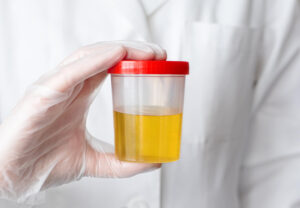At 34, Priya has been trying to conceive for over a year, but without success. After deciding to pursue IVF (In Vitro Fertilization), her doctor recommends checking her AMH (Anti-Müllerian Hormone) levels to assess her ovarian reserve. When the results came back lower than expected, Priya worried about how this could affect her IVF chances.
If you’re like Priya and wondering, What is a good AMH level to get pregnant with IVF?, you’re not alone. In this guide, we’ll explain the role of AMH in fertility, its impact on IVF, and how to optimize your chances of success.
The Role of AMH in Your IVF Journey
AMH (Anti-Müllerian Hormone) plays a crucial role in evaluating a woman’s fertility potential. It helps assess ovarian reserve, which refers to the number and quality of eggs still present in the ovaries.
Produced by cells in the ovaries, AMH reflects the number of follicles (small sacs containing immature eggs) at a given time. One of the reasons AMH levels are so valuable is that they remain relatively stable throughout the menstrual cycle, making them a reliable marker for ovarian reserve.
Ovarian Reserve and AMH Levels
Higher levels generally indicate a larger number of eggs, which is associated with better fertility. Lower AMH levels, on the other hand, can suggest a diminished ovarian reserve, which might impact your ability to conceive.
AMH’s Impact on IVF Treatment
AMH levels play a significant role in guiding IVF treatment. For instance, women with higher levels typically have more eggs retrieved during IVF,which can increase the chances of successful fertilization and embryo development. On the other hand, a low AMH level for IVF may suggest a reduced ovarian reserve, meaning fewer eggs are available for retrieval. In such cases, fertility specialists often adjust the treatment plan, including the use of specialized ovarian stimulation protocols, to maximize the chances of success. Understanding your AMH level for IVF helps your doctor make the most informed decisions about your treatment plan.
Relationship Between AMH and IVF Success
While AMH is an important factor in the IVF process, it should be considered alongside other key factors. Age, egg quality, and overall health also influence how successful the treatment might be.
AMH and Fertility: What is a good AMH Level to get Pregnancy?
AMH (Anti-Müllerian Hormone) is produced by the ovaries and serves as an indicator of a woman’s ovarian reserve. Typically, to increase AMH levels suggest better fertility potential, while lower levels may indicate fewer eggs available for conception.
Typical AMH Levels:
- High AMH: Above 3.0 ng/mL, often reflects a larger ovarian reserve, which may be associated with better responses to fertility treatments.
- Normal AMH: Between 1.0 – 3.0 ng/mL, signifies a healthy ovarian reserve, offering good chances for natural conception or IVF success.
- Low AMH: Below 1.0 ng/mL, suggests a reduced ovarian reserve, which may lower fertility but does not necessarily rule out pregnancy.
Impact on Fertility:
While a higher AMH level is generally linked to better fertility, other factors like age, egg quality, and health must also be considered in your fertility journey.
AMH and IVF:
In IVF, AMH levels are one of the key indicators that help doctors design a personalized treatment plan. This hormone provides valuable insight into a woman’s ovarian reserve, which includes the number and quality of remaining eggs
Women with higher AMH levels typically have a larger number of eggs available for retrieval, which can increase the chances of successful fertilization, embryo development, and ultimately, pregnancy.
This allows for a broader range of IVF options, potentially leading to more eggs being harvested, which may improve the chances of creating viable embryos.
On the other hand, women with lower AMH levels tend to have fewer eggs available, and this can affect their IVF treatment plan. A lower AMH level may signal a diminished ovarian reserve, which means fewer eggs can be retrieved during the stimulation phase of IVF.
AMH testing is just one part of the comprehensive assessment of fertility, and it is important to remember that age, lifestyle, and overall reproductive health also play significant roles in IVF success. Ultimately, the more information doctors have about your ovarian reserve, the more effectively they can tailor the treatment plan to enhance the chances of a successful outcome in your IVF journey.
AMH as a Fertility Tool:
Though AMH levels provide valuable insights into fertility, it’s just one piece of the puzzle. Other factors, like age, health, and lifestyle, are also essential in determining your fertility potential.
Factors Leading to Lower AMH Levels
Low AMH levels indicate a reduced ovarian reserve, meaning fewer eggs are available. Several factors contribute to this decline, and understanding them can help in managing fertility effectively.
Key Factors for Lower AMH Levels:
- Age: Age is the most significant factor affecting ovarian reserve. As women get older, their reserve of eggs naturally declines, with a noticeable decrease starting after the mid-30s.
- Genetics: If your family members, such as your mother or sisters, experienced early menopause or had a lower ovarian reserve, you may also notice a decline in egg quantity earlier than expected.
- Health Conditions: Conditions like Polycystic Ovary Syndrome (PCOS) can lead to an increased number of follicles, while conditions such as endometriosis or ovarian surgery can result in a reduced ovarian reserve.
- Chemotherapy or Radiation: Treatments like chemotherapy or radiation can damage the ovaries and reduce AMH production.
- Ovarian Surgery: Surgeries involving the ovaries, such as cyst removal, can result in lower ovarian reserve and AMH levels.
- Environmental Toxins: Exposure to endocrine disruptors and environmental toxins can negatively affect ovarian health and reduce the number of available eggs.
- Autoimmune Diseases: Certain autoimmune diseases can harm the ovaries and affect AMH production.
Strategies to Keep Your AMH Levels in the Fertility Zone
While you can’t directly increase AMH levels, certain lifestyle changes can help optimize your fertility and support overall reproductive health:
- Healthy Diet: A diet rich in vitamins, antioxidants, and healthy fats can support ovarian health and possibly help maintain AMH levels.
- Regular Exercise: Moderate physical activity can improve blood circulation and hormone balance, potentially benefiting your ovarian reserve.
- Manage Stress: Chronic stress can interfere with hormone levels, so stress-reduction techniques like yoga or meditation are helpful.
- Avoid Smoking and Excessive Alcohol: Smoking and excessive alcohol intake can negatively impact egg quality. Avoiding these can support fertility.
- Maintain a Healthy Weight: Being overweight or underweight can affect hormone balance and AMH levels. Maintaining a healthy weight may help regulate your ovarian reserve.
- Limit Exposure to Toxins: Reduce exposure to environmental toxins, including pesticides and plastics, which can harm fertility.
- Consult a Fertility Specialist: Regular check-ups with a fertility expert can help monitor and manage AMH levels, particularly if you’re planning to conceive.
Conclusion
AMH (Anti-Müllerian Hormone) is a crucial marker of ovarian reserve, influencing your fertility and IVF success. Normal AMH levels typically range from 1.0 – 3.0 ng/mL, with higher levels suggesting better ovarian reserve and fertility potential. However, it’s essential to remember that other factors, like age and overall health, also play a significant role in your fertility.
If you’re unsure, what is a good AMH level to get pregnant?, the answer varies based on individual factors, but a healthy range generally lies between 1.0 – 3.0 ng/mL. If you’re concerned about your AMH levels and how they may impact your chances with IVF, consulting a fertility specialist can provide personalized advice to improve your chances of conception. By understanding your AMH and optimizing your fertility, you can make informed decisions as you work toward your path to parenthood.
Ready to take the next step in your fertility journey? Book a consultation with a fertility expert today and get the guidance you need to maximize your chances of success!


